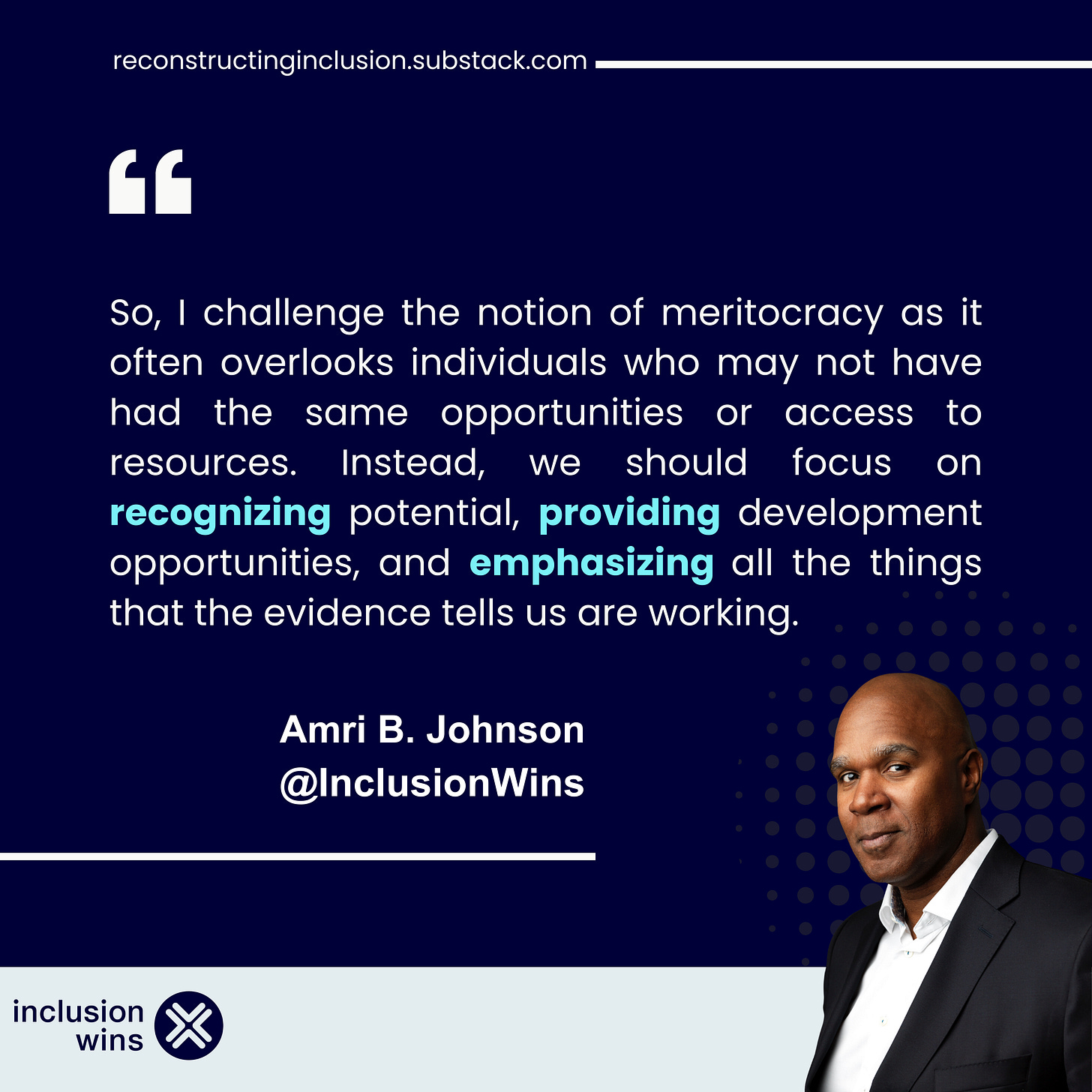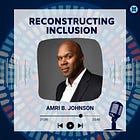Anti-DEI vs. Pro-DEI: A Conflict or Confluence of Visions?
Hint: It isn't a binary, but it is a preference.

"We should not expect individuals to produce good, open-minded, truth-seeking reasoning, particularly when self-interest or reputational concerns are in play. But if you put individuals together in the right way, such that some individuals can use their reasoning powers to disconfirm the claims of others, and all individuals feel some common bond or shared fate that allows them to interact civilly, you can create a group that ends up producing good reasoning as an emergent property of the social system."
Haidt's observation about collective reasoning as "an emergent property of a social system" feels like common sense. Yet, this approach seems notably absent in the discourse surrounding Diversity, Equity, and Inclusion (DEI). I've previously hypothesized why meaningful engagement falls short in DEI spaces—often due to self-interest disguised as moral righteousness. However, I now recognize that this same pattern manifests among those who are staunchly anti-DEI.
To be clear, I'm not referring to those who simply oppose the ideological reification of single identities. I count myself among that group. Rather, by "staunchly anti-DEI," I mean those who oppose DEI initiatives primarily because of the benefits they derive from doing so—whether through enhanced status, political favoritism in the current Zeitgeist, or the satisfaction of feeling they're on the "right" side of the argument.
Thomas Sowell's "A Conflict of Visions" provides a valuable framework for understanding this dynamic. Sowell describes "visions" as intuitive feelings people hold about human nature, with different visions leading to radically different perspectives on everything from war to justice.
Though Sowell is primarily associated with conservative circles, it's erroneous to simply map his "constrained vision" to the right and his "unconstrained vision" to the left. I once held this misunderstanding myself. The reality is more nuanced, and examining these visions closely reveals surprising insights about our current political discourse related to DEI.
The Unconstrained Vision
The unconstrained vision rests on the belief that human nature is fundamentally good. Those who hold this vision tend to distrust decentralized processes and feel impatient with large institutions and systemic processes that limit human preferences. They envision ideal solutions to every problem, no matter how complex, and believe their approach is definitively correct.
Any collateral damage—people harmed by their prescribed solutions—is merely considered the price of progress toward perfection. Sowell often refers to these individuals as "the self-anointed," believing themselves to possess superior knowledge. They feel entitled to judge and prescribe social outcomes rather than processes while avoiding accountability for the results of their ideas.
They desire outcomes that match their vision, often without having any skin in the game. When their preferred outcomes fail to materialize, they take no responsibility for negative consequences, instead blaming others for the problems they've helped create.
Ultimately, adherents of the unconstrained vision believe humans can achieve a kind of moral transcendence. They subscribe to the notion that some people have progressed further along the path of moral development, have overcome self-interest, remain immune to the corrupting influence of power, and can therefore serve as surrogate decision-makers for the rest of society.
De-centering Whiteness?
The Constrained Vision
Sowell argues that the constrained vision is built on the belief that human nature is essentially unchanging and that people are naturally self-interested, regardless of their intentions. Those with a constrained vision prefer the systematic processes of the rule of law and the tested wisdom of tradition.
As Sowell is often quoted saying, "There are no solutions, only trade-offs." Empirical evidence and time-tested structures are favored over interventions and personal experiences. The constrained vision demands checks and balances, refusing to accept that all people could set aside their innate self-interests.
People with this vision understand that compromise is essential. As D.H. Lawrence says (which I reference in my book Reconstructing Inclusion, regarding meritocracy), ideals become "our crimes and perversities, only possible because we have put ourselves in the service of ideals, and lost our souls in the process." The constrained vision is clear that ideals are illusionary.
The Confluence
Interestingly, most corporations can hold the same vision as both pro and anti-DEI camps—the unconstrained vision. This helps explain why discourse around DEI often generates more heat than light. When we look closely at social justice advocates, adherents of Kendi and DiAngelo-esque DEI approaches, and many staunch anti-DEI voices (as defined above), we find the same fundamental pattern: a belief in the moral superiority of their position that justifies dismissing opposing perspectives.
What vision do so-called social justice warriors fall into?
What vision do adherents of Kendi and DiAngelo-esque DEI fall into?
What vision do anti-DEIers fall into (according to my definition above)?
In what ways might both of them fall into both? And when might they or have they in the past?
My answer, perhaps unsurprisingly, is that these seemingly opposed groups often share the unconstrained vision. They believe in the moral transcendence of their position and the corruption of those who disagree. They see ideal solutions that they, in their self-elevated superiority, generate where others see trade-offs. They prescribe outcomes rather than processes.
Perhaps by recognizing this typical pattern, we might begin to create the conditions Haidt describes—where individuals can "use their reasoning powers to disconfirm the claims of others" while maintaining a "common bond or shared fate that allows them to interact civilly." Only then might we produce "good reasoning as an emergent property of the social system" and move beyond the self-reinforcing ideological bubbles currently dominating DEI discourse.
Ready to transform inclusion from concept to culture?
When inclusion becomes "the way we do things around here," it transforms from initiative to being a key part of organizational identity.
Want to be part of this transformation? Join our free EMERGENT Inclusion Framework virtual event. Whether you're a skeptic or champion, your voice matters in this conversation.
This isn't another discussion about group identities, allyship, and injustice. While those things have their place, the focus on symptoms rather than diving into the complexity of systems have not unlocked organizational value as practitioners and supporters have hoped for them to.
I hope this was helpful. . . Make it a great day! ✌🏿







